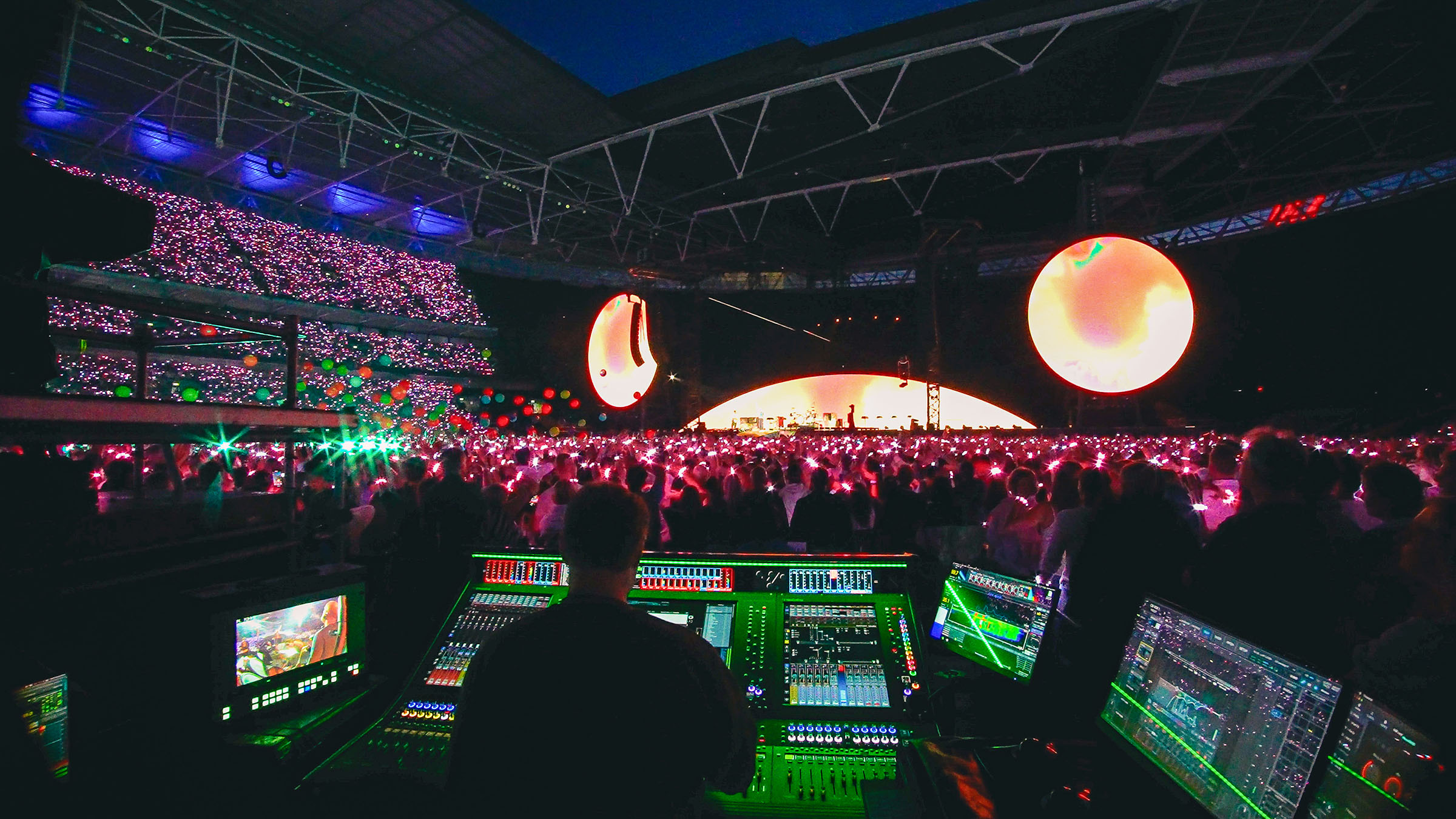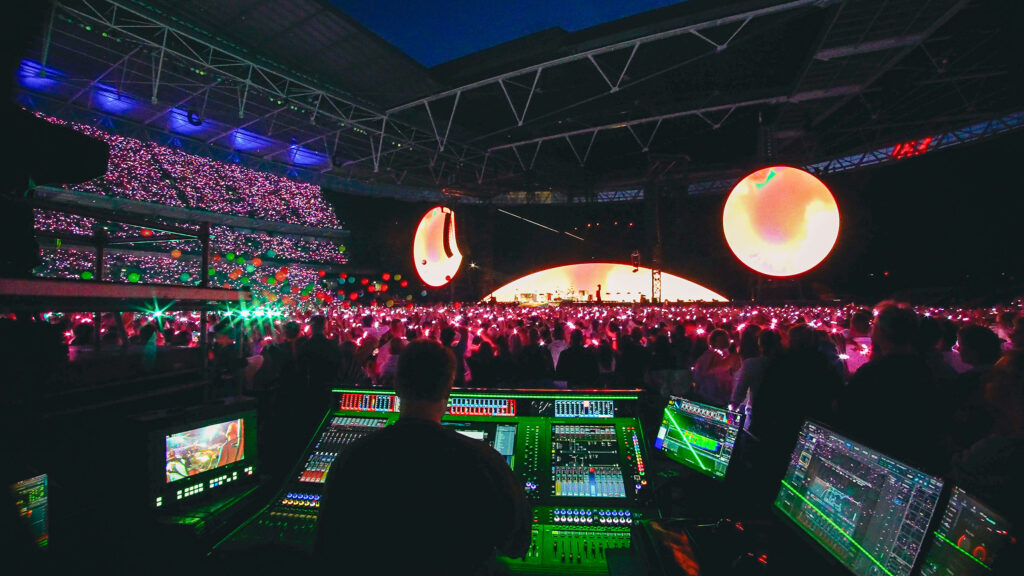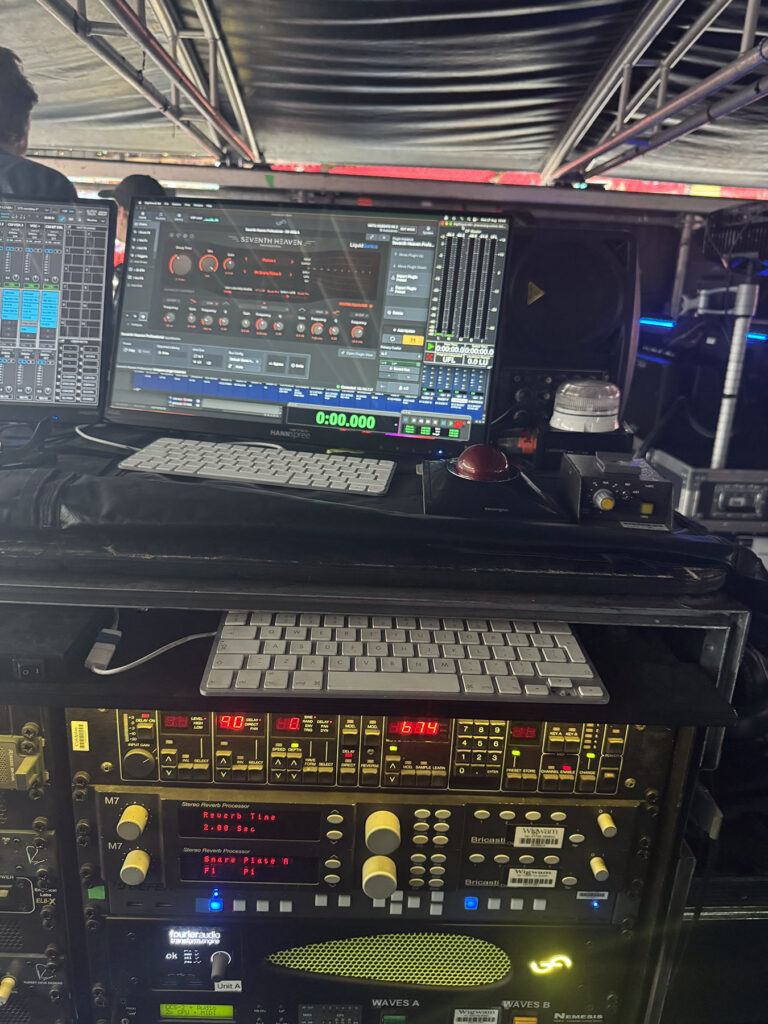Coldplay Circles the Globe with transform.engine on Music of the Spheres World Tour
07 Nov, 2025

Dan Green, FOH engineer for Coldplay, uses transform.engine to bring those must-have studio plugins he relies on right into the live touring environment.
LONDON, UK – November 2025
Coldplay’s Music of the Spheres World Tour is a global concert trek without peer. Kicking off in San José, Costa Rica on March 18, 2022 and taking a hiatus following a ten-date residency at London’s Wembley Stadium that concluded on September 12, 2025, the 225-show-to-date tour has performed in 80 cities across 43 countries.
Supporting 2021’s Music of the Spheres and 2024’s Moon Music albums, the stadium run has been equally significant for its remarkable sustainability initiatives, reducing CO2 emissions by nearly 60 percent compared to the band’s previous outing. But the trek is far from over; it’s expected to pick back up in 2027 with another massive leg in what the band have teased as “138 more shows to go.”
If the tour’s longevity is impressive, it pales in comparison to the tenures of some of its key crew, including Dan Green, Coldplay’s FOH engineer and audio producer since 1998, and Tony Smith, head of audio system design and FOH tech, who has worked with Green for 23 of those years. Almost as remarkable, the lion’s share of that timespan has found the duo working with DiGiCo worksurfaces.
“We’re really proud of what we’ve achieved with the sonics of the Coldplay shows, and we always get nice comments back about the shows. Wherever you are in the venue, it’s a great experience. And it’s also great because the social feeds and broadcasts sound brilliant because of our stem system. We’ve had an incredible response to our Glastonbury performance from the BBC, so we are really pleased with how everything is sounding.”
The tour’s commitment to “going green” is embraced by all departments, including audio. “Sustainability has been a big part of what we’re trying to achieve for the tour,” Green shares. “In the audio department, we’ve tried to downscale our racks, whereas before I had a lot of analog hardware, lots of analog preamps, lots of outboard effects. And I’m really happy that now we’ve managed to reduce our setup down to the Quantum8 and basically one rack by the use of Fourier plugins and onboard effects and processing on the desk. It’s made a big difference.”
Green and Smith actually started out with the beta version of Fourier Audio’s transform.engine two and a half years ago, before it was officially launched, and were able to road test it by slowly integrating it into their setup. “Fourier was really interesting to me as I was able to host the VST3 plugins that I use a lot in the studio, and I wanted to have the opportunity to bring these into a live context,” says Green. “I was really excited to beta test it. And as soon as we got the full working version – the official release – we put it into our system and it’s been fantastic. I’ve uploaded all of my effects onto the Fourier and have really enjoyed exploring VST3 plugins in a way that I wasn’t able to do before.”
“With mixing live audio, I’ve always enjoyed using plugins because it enables me to switch things out and try different things on an almost nightly basis, if I want,” he continues. “Hardware is amazing and I love it, but it’s quite restricting in the fact that once you’ve built a rack, you’re normally stuck with that rack for the duration of the tour or the whole campaign – in our case, that’s four years! So it’s quite hard to change things in and out on an ad hoc basis when it’s all still working. With the transform.engine, having access to all of these VST3 plugins enables me to experiment with any idea that I may have. Anything that pops to mind, I can basically just give it a try – let alone also being able to stack processes, which in hardware is much harder. For instance, I may have a reverb that I want to follow by a compressor. If I want to try that, I’ve got the option to be able to do that.”
“The Fourier has been really rock-solid – no complaints there at all – and it’s been a joy to test it on DiGiCo products. I’m really excited about what they’ve got to offer in the future.”
Watch the video interview with Dan Green here: https://youtu.be/OjCOY_eoz84
For more details on Coldplay’s recent tour, visit www.coldplay.com/tour. Solotech can be found online at www.solotech.com.

